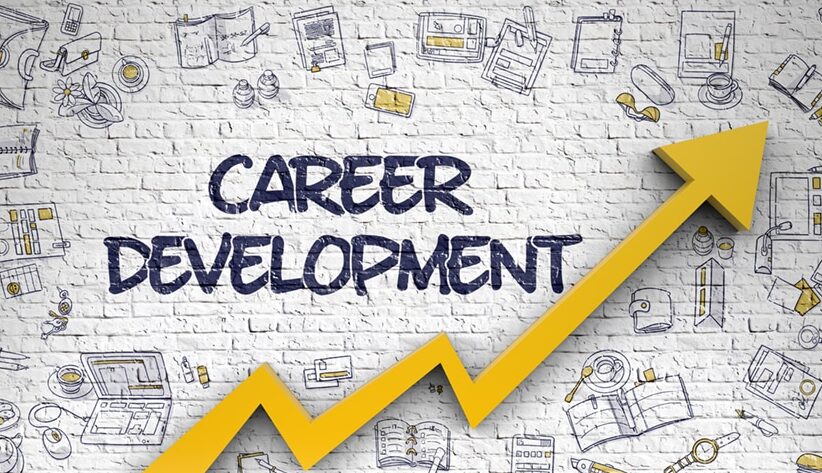Identifying career goals and pathways is an essential step in career development. Self-reflection and assessment are crucial in determining one’s strengths, weaknesses, and interests. Different online resources offer free self-assessments that can help individuals learn about different aspects of themselves, including career interests and personality.
Additionally, seeking guidance from mentors and career advisors can provide insight into potential career paths and help individuals navigate career opportunities. Career assessments are also available to help individuals determine their strengths and identify potential career options. By taking the time to reflect and assess, individuals can gain a better understanding of themselves and their career aspirations.
Researching different career options is another important aspect of identifying career goals and pathways. Free online resources, such as My Next Move, can help with career exploration. Familiarizing oneself with career options and opportunities connected to their interest areas and how to prepare for them can also be helpful. Additionally, students can benefit from seeking guidance from professionals in their desired field to gain real answers to their career questions. The Resources for Students page also contains information about career opportunities and graduate schools in various fields. By conducting thorough research, individuals can gain a better understanding of the potential career paths available to them.
Seeking guidance from mentors and career advisors can provide valuable insight into potential career paths and opportunities. The resources listed on various career development websites can help individuals prepare for a productive and effective job search, as well as enhance their career development efforts. Additionally, identifying gaps or unmet needs in existing mentoring relationships can help individuals determine what needs will best be met by finding a new mentor. Career guidance and counseling programs can also provide individuals with the knowledge, skills, and experience necessary to identify career options and explore potential pathways. By seeking guidance and utilizing available resources, individuals can develop a clear understanding of their career goals and pathways.
Building a Strong Professional Network
Building a strong professional network is essential for career development, and there are various strategies and best practices that individuals can utilize to achieve this goal. Networking involves making meaningful connections with individuals in one’s industry or field, which can lead to opportunities for professional growth and development. Some effective networking strategies include attending industry events, reaching out to professionals for informational interviews, and joining professional organizations. It is important to approach networking with a genuine interest in building relationships and helping others, rather than solely focusing on personal gain.

Social media platforms such as LinkedIn, Twitter, and blogs can also be effective tools for networking. Professional organizations provide opportunities for individuals to connect with others in their field and stay up-to-date on industry trends and developments. Additionally, utilizing social media for professional growth can help individuals expand their network and connect with others in their industry. However, it is important to use social media in a professional manner and to be mindful of the content that is shared.
Developing strong relationships with colleagues and mentors is another important aspect of building a strong professional network. Asking questions and seeking guidance from colleagues and mentors can help individuals learn and grow professionally. Additionally, having a mentor can provide valuable insights and advice for career development. It is important to approach these relationships with a willingness to learn and a desire to build a mutually beneficial partnership. Overall, building a strong professional network requires effort and a willingness to connect with others in a meaningful way, but can lead to significant opportunities for career growth and development.
Developing Essential Skills and Experience
Gaining experience through internships and volunteer work is an essential step in developing the skills and experience necessary for a successful career. Internships provide valuable, hands-on experience in one’s field, allowing individuals to apply the knowledge gained in the classroom to real-world situations. The National Association of Colleges and Employers (NACE) recommends best practices for internship programs that lead to full-time hiring, including work assignments and arrangements. Additionally, internships can help launch careers, and members of the Early Careers Center of Excellence provide top advice for securing and succeeding in internships. Volunteering is another great way to gain experience and develop skills while giving back to the community. By participating in internships and volunteer work, individuals can gain the experience and skills necessary to succeed in their chosen career paths.
Developing technical and soft skills is crucial for individuals seeking to advance in their careers. Technical skills, such as proficiency in specific software programs or coding languages, are essential for many jobs in today’s market. Soft skills, such as communication and teamwork, are also critical in the workplace and can make individuals more attractive job candidates. Career guidance and counseling programs can help individuals acquire the knowledge, skills, and experience necessary to identify options and develop on-the-job skills. By developing both technical and soft skills, individuals can become more competitive in the job market and advance in their careers.
Pursuing continuing education and professional development opportunities is necessary for individuals to remain competitive in today’s job market. Continuing education can take many forms, from earning additional degrees to enrolling in professional development programs. Online resources are also available for self-help career planning and skill development. Additionally, employers often offer opportunities for professional development, such as workshops and training sessions, to help employees grow and advance in their careers. By pursuing continuing education and professional development opportunities, individuals can stay up-to-date with the latest industry trends and remain competitive in their fields.
Navigating Career Transitions and Challenges
Coping with job loss and unemployment can be a challenging and stressful experience. It is important to seek out resources and support during this time to help manage the emotional and financial impact of job loss. The U.S. Department of Labor’s Career OneStop site provides a Reemployment Portal with information on filing for unemployment insurance in each state. Additionally, there are counseling techniques and resources available to help individuals cope with the stress of unemployment, such as networking and building connections, professional development and learning, and finding job opportunities. It’s essential to take inventory of one’s skills and accomplishments, as well as assess personal values and interests to identify potential career paths. Seeking support from a mentor or sponsor and pursuing ongoing professional development can also help individuals manage job loss and navigate career transitions.
Managing career change and transition can be another significant challenge. It’s essential to create an action plan and document job duties and workflows for a smooth transition. Examine transferable skills and accomplishments, find a mentor or sponsor, and pursue ongoing professional development to support career change. It’s also important to take advantage of networking opportunities to learn about potential career paths and connect with individuals in those roles. Finally, it’s crucial to overcome common career-related challenges and obstacles, such as communication barriers and work-life balance issues.
Overcoming career-related challenges and obstacles requires a proactive approach and utilizing available resources. One of the best ways to explore potential career paths is to perform work related to the occupation in mind, which provides firsthand information about the role. The internet also offers a wealth of career resources, including self-help career planning tools and information about job opportunities. By utilizing these resources and taking a proactive approach to career development, individuals can successfully navigate career transitions and overcome common career-related challenges.










